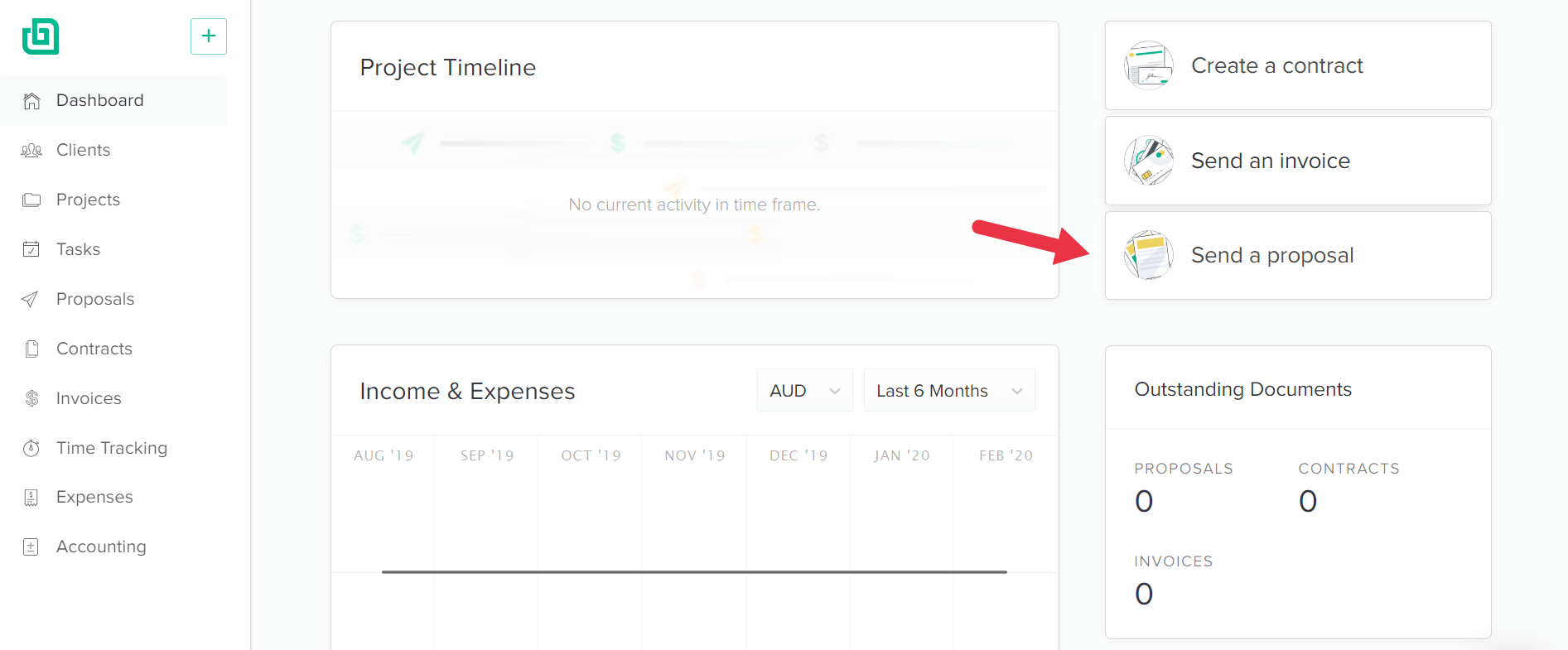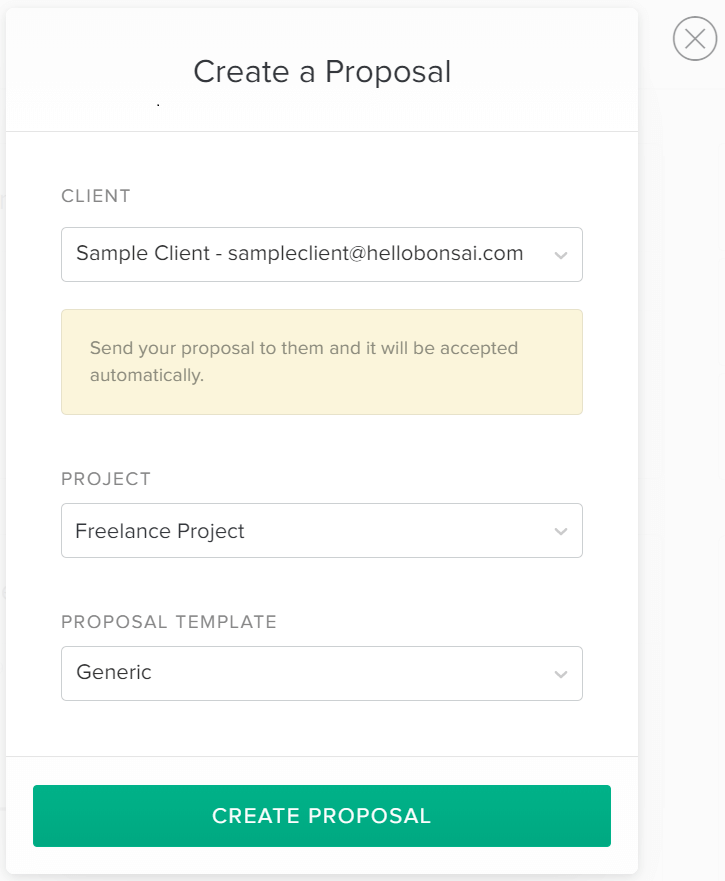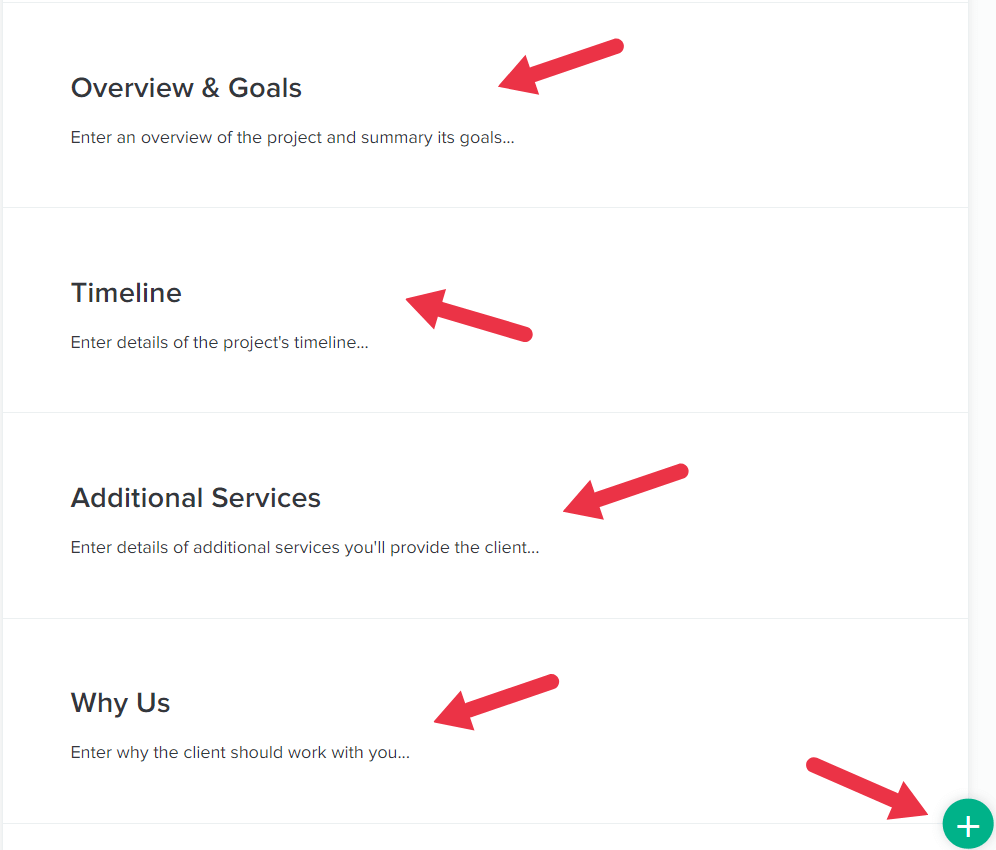It’s a long-known fact that word-of-mouth is one of the best ways to generate new business and sign - it makes the entire process of submitting proposal templates or scope of work templates much smoother. In fact, in 2014 an impressive 52.2% of small businesses reported that friend referrals was their most successful business tool. But what about if you’re not a mom-and-pop-shop or restaurant. Can referrals also work for your freelance business? And, if so, how to ask for referrals?
It turns out the answer is a big resounding YES. A recent survey of freelancing trends from Hubstaff reported that prospective clients coming from referrals were 30% more likely to convert to paying clients than those coming from other channels.
Acquiring new customers for your freelancing business can sometimes be the most challenging part of your day-to-day work, especially if you tend to work on one-off-projects, and referrals can be a great way to make sure you never have to worry where the next client you sign an online contract with is going to come from.
But how exactly do you get a great one, and how to ask for referrals from existing clients?
To answer those questions, read on below. You'll also discover a downloadable pack with our 5 preferred email templates to use when asking for referrals.
1. Why ask for referrals
As a freelancer, you know how much time and effort goes into writing freelance proposals and trying to acquire new clients— in which case, it may come as no surprise that the cost of customer acquisition has gone up by a whopping 50% in the last five years.
Think of referrals as a form of free advertising. Prospective clients who come to you via referrals seem to almost drop out of nowhere, landing in your lap without any extra effort on your part. Except, of course, doing a great job in the first place.
You spend much less time trying to convince referred clients to work with you because the person who referred them has already done much of the convincing for you. As an added bonus, social proof felt by these prospective clients means you can also charge them more: they already have an idea of the value you’ll provide and so will be more willing to pay a premium for your services.
2. How to attract referrals
The quickest and best way to attract referrals for your business is to make your clients happy (and if you do, why not ask for testimonials?). You want to make your existing clients so pleased with the work you deliver that they want to brag about you and the work you’ve done to all their friends and colleagues.
While you’ll always want to do your best to deliver on-time and on-budget, besides using creative ways to get referrals (or thinking about how to increase referrals), look for ways to exceed your clients’ expectations whenever you can.
- Is there a way you can change your schedule to deliver ahead of time?
- How can you go beyond the scope of the project (within reason) to deliver a superior product?
- Or, how can you make your client feel like the work you’ve delivered is of higher quality than the price you charge for it?
Constantly going above and beyond is the best way to attract referrals… but that doesn’t mean you can just do a great job and expect referrals to roll in. While some existing clients will refer you just because they’re happy with the work you’ve done, more often than not you will actually have to ask for a referral, in some cases even asking for referrals in an email.
(PS: As your business grows, you’re going to need tools to help you save time and money. Try Bonsai for free today and see the benefits of freelancing on autopilot.)

3. How to ask for referrals in an email
One of the most efficient ways to secure a great referral is to ask for one from your existing clients in an email. Keep in mind that this isn’t a cold email or a pitch, so your request isn’t going to require the same amount of formality you’d use in, for example, a freelance proposal.
Talk to your client in the same way you have been all throughout your working relationship, and don’t be afraid to be friendly and warm in your approach. And be sure to include your preferred contact information so they know exactly how you can be reached if they do decide to refer you to someone else.
Always follow up and thank your freelance clients for a referral, both when they make the offer (or accept your request) and if that referral ever generates new work for you. Be sincere in your thanks, mentioning what it means for you and your business. The genuinity will make them feel good about referring you, and therefore more likely to refer you again in the future.
4. When to ask for a referral
Now that you know how to ask for referrals, you’re probably wondering... when is the best time to ask? You don’t want to jump the gun and ask too early in your relationship, but you also don’t want to leave it too late.
Put simply, if it’s a one-off project (like content for an eBook, or a brand redesign), ask for a referral after you’ve gotten final sign off from the client. Don’t wait too long— you don’t want them to forget about you and the awesome value you’ve provided— but wait just long enough for them to see actual, noticeable results. For example, you might want to ask them how many leads were generated by your eBook, or whether they saw an increase in traffic after their website was redesigned.
If it’s a long-term project or a retainer agreement (like ongoing graphic design work or regular blog contributions), ask once you know you’ve provided unparalleled value. This will mostly go by gut feeling, but you can be smart about it. Ask for stats as you go and check in with your client for constant feedback. After all, you don’t want to ask for a referral before you’ve proved your worth.
Never ask for a referral as part of your freelance invoice. You always want to wait until after the project is wrapped up and payment has successfully gone through.
If you got a successful referral, you're ready for the next step, which is submitting a proposal. Did you know how easy it is to send amazing proposal templates using Bonsai?
From your dashboard, all you have to do is click on "send a proposal".

Immediately after you'll be ready to set up your proposal, and choose or create a client and project. Once done, simply click on "create proposal" to move on to the next step.

Once the proposal editor is loaded, you will be able to fully customize your proposal starting from personal and client details, to more personalized changes such as adding a custom background or your company logo to the proposal.

After you've set all of this up, just scroll down to the various proposal sections. This is where the magic happens: you can adjust all these blocks to your needs, which means updating them, moving them around, to even deleting them and adding fresh new sections to the proposal.

When you're all good to go, simply scroll back up and click on "send proposal". Fingers crossed!
Did you like Bonsai's workflow? If you did, we encourage you to sign up for a free trial and explore proposals and the many other integrated features such as contracts, invoicing and time tracking, to name a few.
5. Creative ways to get referrals
At Bonsai, we like to think outside the box -- as you can see from our 100 freelance tips with creative answers to solving common freelance difficulties.
5.1. Don’t want to just come out and ask for a referral?
Ask for a testimonial instead. That way you still have something you can use on your website or in your marketing materials… plus you’ll get your client thinking about what a great job you did.
They might even offer a referral on their own!
5.2. Offer an incentive
Let your existing clients know that you’ll offer them something if they refer you to someone else, like a discount for future work or a project add-on. This won’t work for all business models but are especially valuable if you offer digital products.
5.3. Give and take
For example, if you’re a graphic designer who works with other creative entrepreneurs, refer their services to your other clients. Or, if you previously did work for a content writer, think about recommending their services to your next blogger client. Most freelancers would be happy to return the favor.
Bonus: 5 sample referral email templates
Wondering just how to ask for referrals in an email? Here’s one sample email template to follow— just be sure to personalize it for each client.
And right below it, you'll be able to download the pack with our 5 favorite referral emails.
Hi (name),
I hope things are well with you. (Insert a personal anecdote here)
I’m really glad that you were so pleased with my work on (project details). I wanted to reach out to you to ask if you might know anyone else who might be interested in similar services.
I’m always looking for new referrals and ways to grow my business and (add a note about your availability, particularly if limited).
Let me know if anyone comes to mind, and feel free to direct them to (your website or wherever they can find out more about what you do).
Sincerely,
(Your name)
Things to remember…
Asking for a referral can be nerve-wracking, especially if you’re just getting started. Here are some things to remember that might soften the blow when it’s time to ask for referrals:
- People like to help other people! If you’ve truly done a good job and built a good relationship with your client, they should be more than happy to refer you to someone else. After all, they’ll get a good feeling out of it too.
- Remind yourself the worst that can happen is that they say no. And if that happens, you simply move on. Plus you then have the opportunity to ask why and what you can do to improve. Learning from your mistakes and growth is important for any business
- It’s expected. It won’t come as a surprise to your clients that you’ve asked for a referral, and they’re not going to assume you’re not busy or are in desperate need of work. As long as you’ve delivered a good project, it’s highly unlikely they’ll say no.
Just ask
The more often you ask for referrals, the easier it will get… and before long, your business will be growing exponentially. Just keep in mind that your friends at Bonsai are here to help you sort everything out - from your freelance contracts to your time tracking. Check out our free trial and see how much easier running your freelance business can be.






